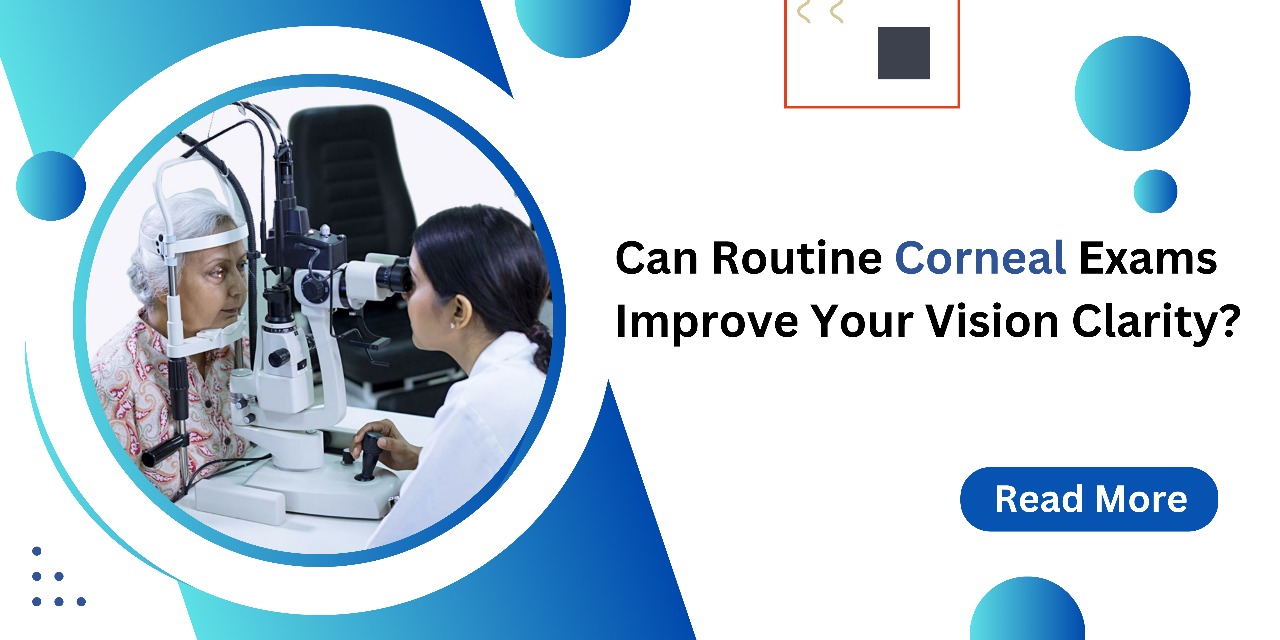Maintaining clear and healthy vision is essential for a high quality of life. One often overlooked aspect of eye health is the cornea—the transparent, dome-shaped surface that covers the front of the eye. Routine cornea exams are crucial for preserving vision clarity and overall eye health. In this article, we’ll delve into the science of the cornea and explore how regular exams can significantly benefit your vision.
Understanding the Cornea
The cornea is the eye’s outermost layer and plays a critical role in focusing light onto the retina. It accounts for approximately two-thirds of the eye’s total focusing power. Composed of five distinct layers, the cornea is remarkably resilient yet susceptible to a range of conditions that can impact vision. Its transparent nature is vital for allowing light to pass through to the retina, where visual information is processed and sent to the brain.
Why Routine Cornea Exams Matter
Routine cornea exams are essential for detecting and managing conditions that can affect vision clarity. These exams help identify issues before they become serious and provide an opportunity for early intervention. Here’s why they are so important:
➽ Early Detection of Corneal Diseases
Conditions such as keratoconus, corneal dystrophies, and infections can alter the shape and clarity of the cornea. Routine exams help detect these issues early, allowing for timely treatment and management.
➽ Monitoring of Existing Conditions
If you have been diagnosed with a corneal condition, regular exams are crucial for monitoring its progression and adjusting treatment plans as needed.
➽ Assessment of Visual Acuity
The cornea’s health directly impacts visual acuity. Routine exams assess how well the cornea is functioning and ensure that your vision remains sharp and clear.
➽ Preventive Care
Preventive measures can be taken based on exam results to address potential issues before they affect your vision. This proactive approach can include recommendations for protective eyewear or lifestyle adjustments.
What to Expect During a Cornea Exam
A typical cornea exam involves several key steps:
➱ Visual Acuity Test: This standard test measures how well you see at various distances. It helps determine if your vision is affected by corneal issues.
➱ Slit-Lamp Examination: A slit lamp is used to magnify the cornea and allow the eye doctor to examine its structure and detect any abnormalities.
➱ Corneal Topography: This diagnostic tool creates a detailed map of the cornea’s surface. It’s particularly useful for detecting irregularities and conditions like keratoconus.
➱ Pachymetry: This test measures the thickness of the cornea. Changes in corneal thickness can indicate problems such as glaucoma or corneal diseases.
➱ Tear Film Assessment: Since the cornea relies on a stable tear film for optimal function, this assessment helps determine if dry eye or other tear-related issues are affecting your vision.
The Benefits of Regular Cornea Exams
Incorporating routine cornea exams into your eye care regimen offers several benefits:
- Enhanced Vision Clarity: Early detection and treatment of corneal issues help maintain clear vision, reducing the risk of vision impairment.
- Reduced Risk of Complications: Identifying potential problems early can prevent complications that might require more invasive treatments or lead to permanent vision loss.
- Improved Quality of Life: Clear vision enhances daily activities, from reading and driving to enjoying recreational pursuits. By keeping your cornea healthy, you support your overall quality of life.
Conclusion
The science of sight is deeply interconnected with the health of the cornea, and regular cornea exams at the best eye hospital in Ambala are a simple yet powerful tool for maintaining vision clarity and preventing a range of eye conditions. As the primary focusing element of the eye, the cornea deserves as much attention and care as any other part of our body. For expert evaluation and care, consult Dr. P.C.Sharma, a leading ophthalmologist at Dr. PC Sharma Eye Hospital , Ambala. By understanding its role and the importance of routine exams, we can take significant steps toward preserving our vision for years to come. For appointments and inquiries, call +919896081381.

